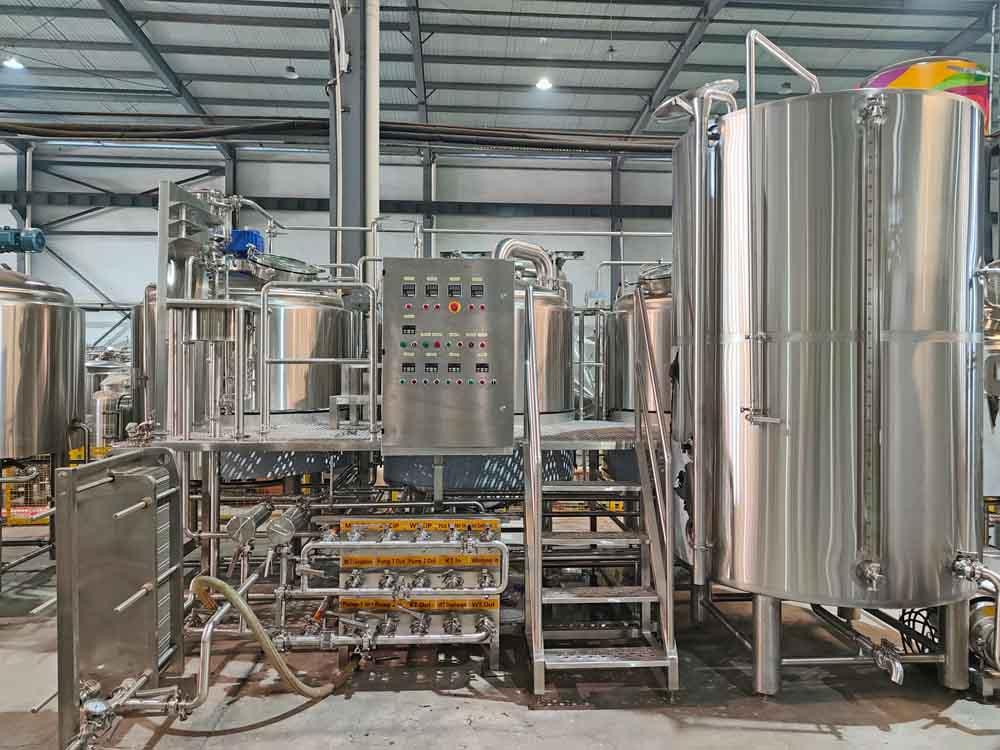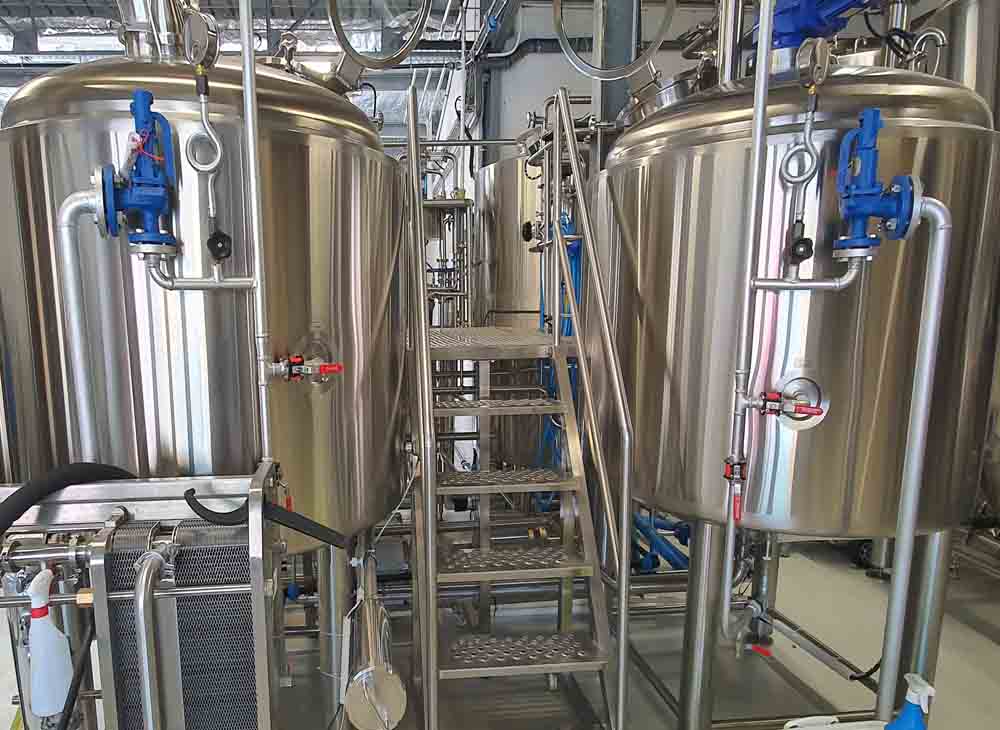What is a microbrewery
- Jul 08, 2024
- 89
- tiantai
A microbrewery is, as the name suggests, a small brewery usually specializing in a very small number of beers and craft ales. Unlike large breweries which are geared towards mass production, a microbrewery concentrates on the overall craft of their products. Beers from one of these smaller brewers are usually developed to have a distinct flavour or have been crafted in a particular way to make it very different to your standard pulled a pint, not least in their names and packaging which is frequently creative or provocative. While the idea of producing only small batches of craft beer may have seemed a sure-fire path to failure a few decades ago, the millennial market has, in fact, made it the key selling point of many a microbrewery.
Today’s crowd wants experiences, not things, and while a pint of Guinness is the most fail-safe order at any bar, it doesn’t come with the in-built adventure and feel of exclusivity that is cracking open a rainbow-coloured can from a little-known brewery. So, if you’ve long wanted to rule your own personal keg kingdom, now is the time to do it.
Here is our handy guide to getting started. As ever, you should always consult with financial and legal professionals before taking the plunge, and our guide is meant only as a general overview of what you can expect from setting up your own microbrewery.

Company summary.
This is where you need a solid overview of your company, including location, size and precisely where company ownership lies. If you have settled on a mission statement, put that in here too. Explain your goals and which ones you have already met, you can also include a brief mention of your revenue, though you will explain this in more detail further into the plan.
Explain your product/ market analysis.
The microbrewery market is ever-growing, and with all of them aiming for a unique, crowd-drawing product, you may find your eureka idea has already been struck on by someone else, that’s why market analysis is so important. Craft beer sales may be booming, leading you to assume you have more chance of success than ever before, but market analysis is the key to having a clear understanding of your real chances of success (and where you are most likely to hit a snag or two), otherwise, you’re going in blind. Include a clear explanation of your product, including all the unique selling points you believe will make it successful or why it will fill a gap in the market, and a thorough explanation of your target market.
Competitive analysis.
This is where you determine your main competitors in your local market or uncover what would make a potential competitor. Explain the strengths and weaknesses of these rival businesses and how you believe your brand will overcome the competition.
Product line.
This is where you can talk about the products you plan on offering and the individual details of each. You can also include how you plan to source your ingredients and how you intend to make them into a unique craft beer.
Sales strategy.
You should include a revenue forecast of the sort of sales you hope to achieve over the next three years or so, and the methods you will employ to achieve these figures.
Management plan.
Wages, training and payroll are just some of the things you should cover in this section which outlines the management structure of your business. You can also include details on how you plan to onboard and manage staff
Financial Considerations.
Think about cash flow, in this section, you will need to define the costings of your business and determine the average profits of your brewery. You will also need to include your break-even point and a profit and loss statement
Malt mill: These are used to crush grains. The finer the grain, the more efficient the mashing.
Mash tun: An insulated container that’s used for mashing.
Filtration technology: Equipment used to remove yeast and debris, e.g., plate filters.
Heat exchanger: Raises and lowers the wort temperature. Important in preventing contamination.
Beer fermenter:Does exactly what it says on the tin, in a temperature-controlled environment.
Hydrometer:Measures the amount of sugar in the wort.
Brite tank:Temperature-controlled container, used to speed up the carbonation process.
Pumps: Transfers the liquid between containers.
Valves: Important for controlling the flow of liquids, gases and mixtures during brewing.
Cellar equipment: Obviously, cellars need to be kept cool, so we suggest a python system, which continuously cools liquids. You’ll also need equipment including cleaning sockets for your kegs.
Dispensing equipment: Includes beer taps (for testing yourself before anyone else) and carbon dioxide regulators.
Kegs: An integral part of the packaging of your product to transport beer to be served from taps. Stainless steel kegs are the best to use. You’ll also need keg washers and fillers.
Brewhouse: You can’t open a microbrewery without a location to create and produce your beer. Everything in the list above needs to be housed here!
If you don’t know how to start a microbrewery, or have any considerations on brewery setup, you can send us an inquiry, and then we will customize a proposal according to your brewing demands.
Derrick
Sales Manager
[email protected]
Tiantai Beer Equipment
Today’s crowd wants experiences, not things, and while a pint of Guinness is the most fail-safe order at any bar, it doesn’t come with the in-built adventure and feel of exclusivity that is cracking open a rainbow-coloured can from a little-known brewery. So, if you’ve long wanted to rule your own personal keg kingdom, now is the time to do it.
Here is our handy guide to getting started. As ever, you should always consult with financial and legal professionals before taking the plunge, and our guide is meant only as a general overview of what you can expect from setting up your own microbrewery.

Create a business plan
Yes, even the most exciting of businesses must start with writing a business plan. Opening a brewery and being your own boss may be one of the more exciting career paths you’ll have ever taken, but all paths need a map, and that’s what your business plan is. A successful plan will include the following:Company summary.
This is where you need a solid overview of your company, including location, size and precisely where company ownership lies. If you have settled on a mission statement, put that in here too. Explain your goals and which ones you have already met, you can also include a brief mention of your revenue, though you will explain this in more detail further into the plan.
Explain your product/ market analysis.
The microbrewery market is ever-growing, and with all of them aiming for a unique, crowd-drawing product, you may find your eureka idea has already been struck on by someone else, that’s why market analysis is so important. Craft beer sales may be booming, leading you to assume you have more chance of success than ever before, but market analysis is the key to having a clear understanding of your real chances of success (and where you are most likely to hit a snag or two), otherwise, you’re going in blind. Include a clear explanation of your product, including all the unique selling points you believe will make it successful or why it will fill a gap in the market, and a thorough explanation of your target market.
Competitive analysis.
This is where you determine your main competitors in your local market or uncover what would make a potential competitor. Explain the strengths and weaknesses of these rival businesses and how you believe your brand will overcome the competition.
Product line.
This is where you can talk about the products you plan on offering and the individual details of each. You can also include how you plan to source your ingredients and how you intend to make them into a unique craft beer.
Sales strategy.
You should include a revenue forecast of the sort of sales you hope to achieve over the next three years or so, and the methods you will employ to achieve these figures.
Management plan.
Wages, training and payroll are just some of the things you should cover in this section which outlines the management structure of your business. You can also include details on how you plan to onboard and manage staff
Financial Considerations.
Think about cash flow, in this section, you will need to define the costings of your business and determine the average profits of your brewery. You will also need to include your break-even point and a profit and loss statement
Equipment Needed to Start a Microbrewery
Tiantai, provides turnkey solutions on brewery equipment, and if you are expecting to start a microbrewery, we will be your honest brewery equipment builder. We have many breweries setup in Europe, Australia, North American, Africa etc, and win high praise from customers. Below are some basic equipment to star a microbrewery.Malt mill: These are used to crush grains. The finer the grain, the more efficient the mashing.
Mash tun: An insulated container that’s used for mashing.
Filtration technology: Equipment used to remove yeast and debris, e.g., plate filters.
Heat exchanger: Raises and lowers the wort temperature. Important in preventing contamination.
Beer fermenter:Does exactly what it says on the tin, in a temperature-controlled environment.
Hydrometer:Measures the amount of sugar in the wort.
Brite tank:Temperature-controlled container, used to speed up the carbonation process.
Pumps: Transfers the liquid between containers.
Valves: Important for controlling the flow of liquids, gases and mixtures during brewing.
Cellar equipment: Obviously, cellars need to be kept cool, so we suggest a python system, which continuously cools liquids. You’ll also need equipment including cleaning sockets for your kegs.
Dispensing equipment: Includes beer taps (for testing yourself before anyone else) and carbon dioxide regulators.
Kegs: An integral part of the packaging of your product to transport beer to be served from taps. Stainless steel kegs are the best to use. You’ll also need keg washers and fillers.
Brewhouse: You can’t open a microbrewery without a location to create and produce your beer. Everything in the list above needs to be housed here!
If you don’t know how to start a microbrewery, or have any considerations on brewery setup, you can send us an inquiry, and then we will customize a proposal according to your brewing demands.
Derrick
Sales Manager
[email protected]
Tiantai Beer Equipment




